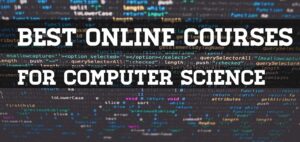Data science is a multidisciplinary field that combines various aspects of statistics, computer science, domain expertise, and machine learning to extract valuable insights and knowledge from data. In today’s data-driven world, it has become a critical component of decision-making in various industries, ranging from healthcare and finance to e-commerce and entertainment.
As we step into 2023, the field of data science continues to evolve rapidly, driven by technological advancements, increased data availability, and growing demand for data-driven solutions.
The Significance of Data Science in 2023
The year 2023 marks a significant milestone in the evolution of data science. Several factors contribute to its growing significance:
- Explosion of Data: The volume of data generated daily is staggering. With the proliferation of the internet, IoT devices, and social media, businesses and organizations have access to more data than ever before.
- Advanced Technologies: The continuous development of advanced technologies such as artificial intelligence (AI) and machine learning (ML) has opened up new possibilities for data analysis and prediction.
- Business Intelligence: Companies are increasingly relying on data science to gain a competitive edge. It helps them understand customer behavior, optimize operations, and make informed decisions.
- Healthcare Innovations: In the healthcare sector, data science plays a vital role in disease prediction, drug discovery, and personalized medicine.
- Economic Impact: The impact of data science on the economy is substantial. It drives innovation, creates job opportunities, and boosts economic growth.
The Data Science Learning Path
To embark on a successful career in data science or enhance your existing skills, it’s essential to have a well-defined roadmap. The Data Science Roadmap 2023 is designed to guide you through the various stages of your journey. Let’s break down the roadmap in more detail:
Foundational Knowledge
The journey begins with building a solid foundation. Whether you’re a beginner or transitioning from another field, understanding the basics is crucial. Here’s what you need to focus on:
- Mathematics and Statistics: A strong understanding of mathematics and statistics provides the theoretical underpinning for data science. Concepts such as probability, linear algebra, and hypothesis testing are fundamental.
- Programming: Proficiency in programming languages like Python and R is a must. These languages are widely used for data manipulation, analysis, and machine learning.
- Data Collection and Cleaning: Learn how to collect data from various sources and clean it to ensure its quality and reliability.
Data Manipulation and Analysis

Once you have a solid foundation, it’s time to dive into data manipulation and analysis. This phase involves working with real data and extracting meaningful insights:
- Data Manipulation: Master tools like Pandas and NumPy, which are essential for data manipulation. You’ll learn how to clean, preprocess, and reshape data to make it suitable for analysis.
- Data Visualization: Data visualization is a powerful way to convey insights. Tools like Matplotlib and Seaborn help you create informative plots and graphs.
- Exploratory Data Analysis (EDA): EDA involves exploring data to discover patterns, anomalies, and trends. It’s a critical step before diving into more advanced analysis.
Read: What is Big Data? What is the Scope of Big Data Technology in 2023
Machine Learning and AI
Machine learning and artificial intelligence are at the heart of data science. In this phase, you’ll delve into the world of algorithms and models:
- Supervised Learning: Understand the principles of supervised learning, where models are trained on labeled data to make predictions.
- Unsupervised Learning: Explore unsupervised learning techniques, such as clustering and dimensionality reduction, which are used for pattern discovery.
- Deep Learning: Dive into deep learning, a subfield of machine learning that focuses on neural networks. Deep learning has applications in image recognition, natural language processing, and more.
Specialization and Advanced Topics
As you progress in your data science journey, you’ll have the opportunity to specialize in a particular area of interest. Specialization sets you apart and allows you to develop expertise in a specific domain:
- Natural Language Processing (NLP): If you have an interest in text data, NLP involves working with and understanding human language. It has applications in chatbots, sentiment analysis, and language translation.
- Computer Vision: Computer vision focuses on the interpretation of visual information from the world, such as images and videos. It’s used in image recognition, object detection, and autonomous vehicles.
- Big Data: With the increasing volume of data, big data technologies like Hadoop and Spark are essential for handling and processing large datasets.
Gaining Practical Experience
While theoretical knowledge is crucial, practical experience is equally important. Here’s how you can gain hands-on experience:
- Projects: Work on real-world projects to apply your skills. Projects allow you to tackle practical problems and build a portfolio.
- Kaggle Competitions: Kaggle is a platform where you can participate in data science competitions. It’s an excellent way to challenge yourself and learn from others.
- Open-Source Contributions: Contribute to open-source data science projects. Collaboration with the community enhances your skills and visibility.
Keeping Up with the Latest Trends
The field of data science is dynamic, with new tools and techniques emerging regularly. To stay relevant, consider the following:
- Continuous Learning: Dedicate time to learning new tools and keeping up with advancements in the field.
- Conferences and Meetups: Attend data science conferences, webinars, and meetups to connect with professionals and learn from experts.
- Follow Industry Leaders: Follow influential figures in the data science community through blogs, podcasts, and social media.
The Importance of Networking
Networking is a valuable asset in the world of data science. Building a network of professionals and peers can open doors to opportunities and collaboration:
- Online Communities: Join online communities, forums, and social media groups dedicated to data science. Engage in discussions and seek advice.
- Meetups and Conferences: Attend local meetups and conferences related to data science. Networking events can lead to job opportunities and collaborations.
Creating an Impressive Portfolio
Your portfolio is a reflection of your skills and expertise. Here’s how to create an impressive data science portfolio:
- Document Projects: Document your projects, explaining the problem, your approach, and the results. Provide code and visualizations to showcase your work.
- Blog Posts: Write blog posts about data science topics, projects, or tutorials. Blogging demonstrates your ability to communicate complex ideas.
Preparing for Interviews
Job interviews in data science can be challenging. To prepare effectively:
- Practice Coding: Brush up on coding skills, especially in Python or R. Be prepared to solve coding challenges.
- Discuss Projects: Be ready to discuss your projects in detail, highlighting your problem-solving skills and the impact of your work.
- Stay Confident: Confidence is key. Remember that interviews are an opportunity to showcase your skills and passion for data science.
Read: The Prompt Engineering: The Ultimate Guide for Beginners 2023
Conclusion
The Data Science Roadmap 2023 provides a clear and comprehensive guide for individuals looking to excel in the dynamic field of data science. By following this roadmap and adapting it to your unique interests and goals, you can navigate the ever-evolving landscape of data science with confidence. Embrace the challenges and opportunities that come your way, and you’ll be well-prepared to make a significant impact in this exciting and rapidly growing field.
FAQs
- What is data science?
- Data science is the interdisciplinary field that combines statistics, programming, and domain knowledge to extract insights and knowledge from data.
- What are the essential skills for a data scientist?
- Essential skills include mathematics, programming (Python or R), data manipulation, data visualization, and machine learning.
- How can I specialize in data science?
- Specialization involves choosing a specific area of focus, such as natural language processing, computer vision, or big data, and gaining expertise in that domain.
- Why is networking important in data science?
- Networking allows you to connect with professionals, discover job opportunities, and stay updated with the latest trends and developments in the field.
- How can I build a strong data science portfolio?
- Building a strong portfolio involves documenting your projects, writing blog posts, and showcasing your skills through practical examples of your work.








